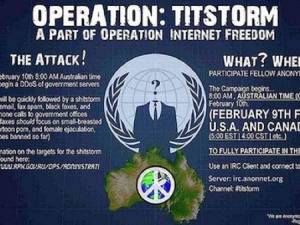
It’s a law that gives a whole new meaning to curves in the road.
In Indonesia’s conservative Aceh province, an Islamist government has put women on notice that female passengers cannot straddle motorbikes because the “curves of a woman’s body” are too alluring unless they sit sidesaddle.
“Muslim women are not allowed to show their curves; it’s against Islamic teachings,” the mayor of the Aceh city of Lhokseumawe told the Associated Press on Monday.
The energy-rich northern province adopted Sharia law in 2009, after it won autonomy from the Indonesian government in a bitter separatist war. It imposed strict morality laws that regulate women’s dress, require shops to close at prayer time and other measures
Indonesia is the world’s most populous Muslim nation, and some of its regions are increasingly stringent in applying religion-based laws. But it pales in comparison with Saudi Arabia, where women are lifelong dependants of men, must be covered in public from head to foot and cannot drive cars, let alone motorcycles.
…and so the article continues.
Reading the above article evokes sadness and frustration on behalf of the Indonesian women, yes. This was most likely the aim of the article, but rather than focus on that topic alone, the article goes on to make links with the difficulty apparently all women face in Muslim countries around the world due to draconian regimes enforcing “Islamic” values.
What compounds the frustration however, is the fact that this is a trend in Western based media. The news so regularly focuses on the 'terrible plight of women' in Islamic countries, blaming the “Islamic” regimes in power and in turn, blaming the belief system as if to say: 'Oh, these women need saving and liberating and freedom from their situations'. This is done while completely neglecting to mention the opinions of the women themselves, the good work the women do in their own countries and fails to understand that there are different cultural expectations around the globe. Often this is a result of culture, tradition and the patriarchal aspects of the society rather than the belief system.
Based on the article, one would think that women are desperately in need of liberating, but that is not always the case – or at least, not always Western society’s role to play.
For a more authentic view, here is an example of what Indonesian women are concerned about in terms of their welfare in their own country.
Yes, there are desperate inequality issues around the world, including in Muslim countries, there is no doubt about that at all. However I grow weary of reading pieces that blame a belief system for the inequality and seek to “save women” (by Western standards) without any consideration of the women as people with a belief system they value rather than objects that fill a convenient role.
A fine case of orientalism indeed.

